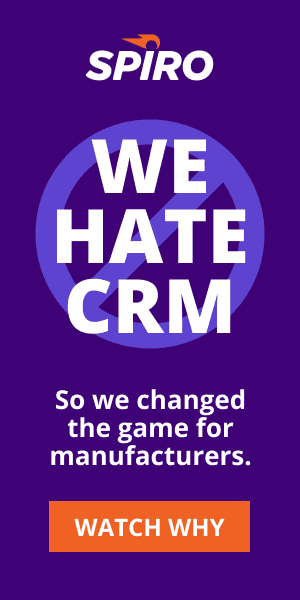4 Reasons Why Your Prospects Are Ghosting You & How to Stop It
Once upon a time we were pitching Sony Pictures on a deal. We had an initial call that went well, we flew to LA, did a big demo – a lot of people were there and everything went great.
We sent them a proposal, even flew out again to followup, but never ever heard a single word after that. A cool deal that we were totally stoked about went up in smoke.
Ghosting is a frequent occupational hazard in sales – everything goes well with a client, you’re getting positive vibes, then they disappear without a trace. Even with Spiro reminding you to follow-up in a timely fashion, the client still don’t respond.
It happens all the time, but you don’t have to let it slide.
To fight ghosting, you first have to know what causes it. Here are a few of the common reasons why a promising prospect turns into Casper the not-so-friendly ghost.
1. The Timing Isn’t Right
The prospect is interested, but other factors are conspiring against you. The prospect might be dealing with competing priorities, not have room in the budget, or have a boss who doesn’t think it’s a good idea.
They don’t want to get back to you because they feel kind of dumb for putting you through all the motions only to disappoint you. So the project was delayed to next year – who wants to be the jerk that delivers the bad news?
2. You’re Not a Good Fit
Maybe what you’re selling just doesn’t work for them. This could arise if your salesmanship was so on point that you sold them on YOU, but, when they took a look at it after being dazzled by your brilliant personality, they realized that they’d gotten in farther than they meant to.
3. They’re Talking to Another Vendor
I worked with a sales manager early in my career who would often interpret silence from a prospect as a sign that they’re talking to another vendor. He figured that they don’t want to say yes, but also don’t want to say no until they figure out whether they’re doing a deal with the other party.
This is a somewhat paranoid, but justified, point of view from a sales guy and I think a somewhat reasonable rationale from the buyer. They don’t want to piss off the other vendor in case they need them.
4. You Messed Up Terribly During the Sales Meeting
Did I mention the wrong company, mention that we were working with one of their competitors? Salespeople can get wrapped up in a blame game, obsessing over what they might have done.
What Can You Do to Stop a Buyer From Ghosting You?
My philosophy is I’d rather get a “no” from a buyer than radio silence, because there are many ways to push past no.
I don’t let them slink off because I expect a level of professionalism. We’re doing things in an above-board and honest way and I expect the same back.
It’s a moral issue for me, but I have to remember not to take it personally. Often a prospect might simply be afraid of a bad reaction from a disappointed salesperson.
Here are some effective ways you can stop a prospect from ghosting you.
The “Lost Email” Ploy
The “buried email email” technique essentially asks a prospect if they got your last email, but in a non-confrontational and indirect way. We find it so effective that we actually built it in as a template in Spiro. Here’s a basic example:
Hi Joe,
Just wanted to follow up in case my email was buried in your inbox.
Thanks,
Adam
If that doesn’t work, then remind them of their professionalism.
The Guilt-Inducing Voicemail
If you do decide to leave a voicemail, remind them that you had a great meeting and would like to know where things stand. With just a touch of guilt.
One tactic is to mention your sales manager at this point. Say he’s been bugging you for an update about the situation. Remind them that you also have people to be accountable to.
Go Over Their Head
There’s a lot of controversy about when to call a higher up in an organization. If you’re talking to a VP and not getting a response then call their boss. You might say, “We met with Harry a bunch of times, but we’re having trouble getting back in touch after we sent our proposal.”
Who knows? Maybe you’ll find out he got sick, maybe he was reassigned. One time when we were ghosted by a VP and called his boss, we found out he had been out sick for some time. We got reengaged after speaking to his boss and it turned out to be a great situation.
The Negative Close
Sometimes you just have to call it like it is to get a response. Sending a ghosting prospect an email that makes it obvious that you’re not going to be working together and wish them well might seem counterintuitive, but it’s often a very effective last resort to get a response.
We have a breakup email template in Spiro that I’ve found really effective called “closing your file.” It goes like this:
Greg,
I’m writing to follow up on my email and voicemail. We are in the
process of closing files for the month.Typically when I haven’t heard back from someone it means they are
either really busy or aren’t interested. If you aren’t interested, do
I have your permission to close your file?If you are still interested, what do you recommend as a next step?
Thanks for your help.
All these actions will hopefully give you an opportunity to diagnose what’s happening when a prospect ghosts you and what you can do about it.
What do you do when a promising prospect loses touch? Share your advice with us below.
Photo courtesy of Ronan Mahon

